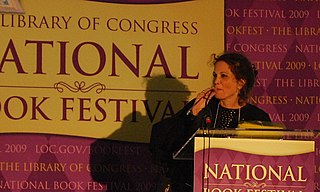A Quote by Amos Oz
There is a document in every novel in the world. Even in the most fantastic novel, even in science fiction, there is a documentary side. But, this side is not the crux of the matter. I don't think a novel's main donation, main gift, is the document. The document is there, but a novel goes beyond documentation. It goes into opening a new vista, opening a new perspective, showing familiar things in an unfamiliar way.
Related Quotes
I don't think a novel's main donation, main gift, is the document. The document is there, but a novel goes beyond documentation. It goes into opening a new vista, opening a new perspective, showing familiar things in an unfamiliar way, and making the reader reconsider the documentary facts which he or she may have known before.
Your opening should give the reader a person to focus on. In a short story, this person should turn up almost immediately; he should be integral to the story's main action; he should be an individual, not just a type. In a novel, the main character may take longer to appear: Anna Karenina doesn't show up in her own novel until chapter eighteen.
When you say documentary, you have to have a sophisticated ear to receive that word. It should be documentary style, because documentary is police photography of a scene and a murder ... that's a real document. You see, art is really useless, and a document has use. And therefore, art is never a document, but it can adopt that style. I do it. I'm called a documentary photographer. But that presupposes a quite subtle knowledge of this distinction.
It's disingenous for me to say that I wasn't trying to write a moral novel. By its very nature as a novel about the Iraq War, Fobbit steps into the political conversation. There's no way to avoid that. I can appreciate that readers are probably going to line up on one side of the novel or the other. I hope they go to those polar extremes, actually.
No writer, I believe, should attempt a novel before he is thirty, and not then unless he has been hopelessly and helplessly involved in life. For the writer who goes out to find material for a novel, as a fishermen goes out to sea to fish, will certainly not write a good novel. Life has to be lived thoughtlessly, unconsciously, at full tilt and for no purpose except its own sake before it becomes, eventually, good material for a novel.
If my setting is new to a reader, or the concerns of the novel are new, I hope they will learn something about the world. I would like to say that they can trust that what they do learn in the novel will be accurate, because I pay a lot of attention to facts. I do a lot of research to make sure that I'm not giving them, you know, blue moons of Jupiter. It's not science fiction.
I'm always trying to make something that is impossible to film. Why would somebody just read a novel when they can see it on TV or in the cinema? I really have to think of the things fiction can do that film can't and play to the strengths of the novel. With a novel, you can get right inside somebody's head.




































